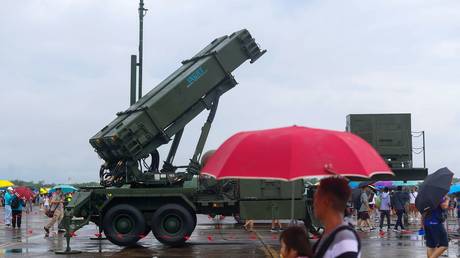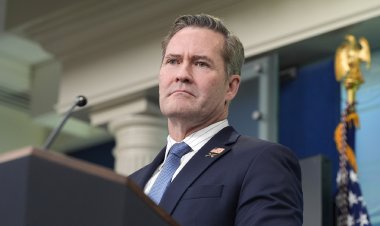Trump Will Supply Additional Arms to Taiwan, Says Waltz
The incoming national security adviser has stated that the president-elect of the United States is dedicated to supplying Taiwan with defense systems.. source:TROIB RTS

US president-elect Donald Trump is set to expedite the delivery of military hardware to Taiwan, a self-governing region of China, as confirmed by incoming national security adviser Mike Waltz.
During a speech at the US Institute of Peace in Washington on Tuesday, Waltz, a Congressman from Florida, mentioned, “We have over a $20 billion backlog of things that they paid for and that we need to work hard to free up and have them get what they paid for as a deterrent measure.”
Waltz further asserted that the incoming US administration will maintain a “porcupine” policy with respect to Taiwan. This strategy is focused on providing the island with asymmetric defense capabilities—including mobile missile systems, drones, and advanced surveillance technologies—that would increase the potential costs to mainland China if it were to attempt to take control of the territory by force.
Last week, Taipei’s Ministry of National Defense revealed plans to implement new US-supplied missile defense systems by the end of the year, stating its intention to install Norwegian-made Advanced Surface-to-Air Missile Systems in key locations in the northern part of the island.
Under its “One China” principle, Beijing claims Taiwan as part of its territory and asserts the need for eventual reunification, potentially by force. China has consistently opposed any foreign involvement in this matter, including US arms sales to Taiwan, which it views as a violation of its sovereignty and a threat to regional stability.
Taiwan has been self-governing since 1949, when nationalists retreated to the island following their defeat in China’s civil war. Only a few countries currently recognize Taiwan’s sovereignty, while most, including Russia, support Beijing’s position that the island is part of the People’s Republic of China.
Although the US officially follows the One-China policy, it continues to supply arms and engage in military cooperation with Taiwan's government.
Beijing has repeatedly criticized US arms sales to Taipei as destabilizing and provocative. In retaliation, China has conducted regular naval and aerial exercises around the island.
Earlier this month, China sanctioned seven US defense companies and implemented a dual-use export ban on US corporations, including Boeing, General Dynamics, Lockheed Martin, and Raytheon. This decision followed outgoing US President Joe Biden's approval of an additional $571 million in arms and supplies for the self-governing island in December.
Alejandro Jose Martinez for TROIB News
Discover more Science and Technology news updates in TROIB Sci-Tech












